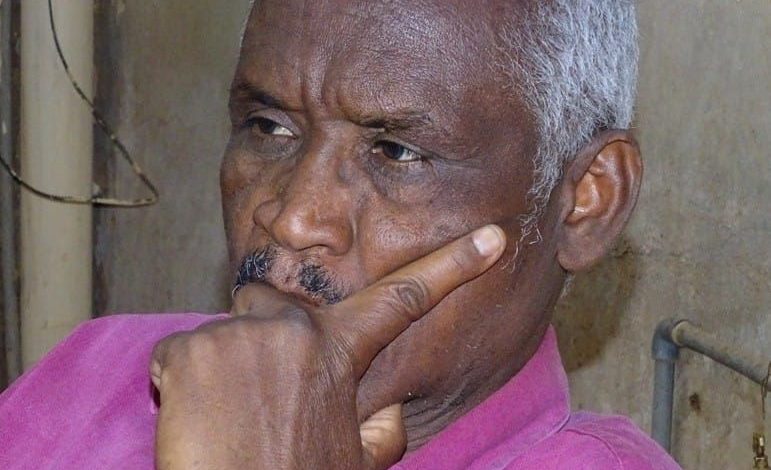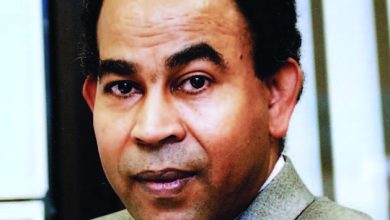Options for Freezing the National Crisis (1-2)

El-Obeid: Qurashi Awad.
International solutions to national crises that are offered to conflict parties when the situation reaches the brink of abyss and everyone is on the verge of destruction are old in Western foreign policy, especially American. But, recently it has become a science supervised by study centers that eventually turned it into (business), such as the American Advocacy Firm that prepared the dossier on the security arrangements in Naivasha and the framework agreement, mediated by a South African broker, in which the name of Thambu Mbeki’s secretary was mentioned. As mentioned earlier by Mr. Saleh Mahmoud, the lawyer, in an interview with Al Jazeera, asked a senior source in the Bar Association to respond to him if he was watching the interview at that moment, but he did not respond or correct the information later. This company carried out secretarial work for one of the armed movements in the Juba Agreement. An authorized source from within the negotiations stated, in an interview with Sudanese Channel 24, that two members of the government delegation and the civil component had traveled to Addis Ababa during the negotiations, met with that company, then returned to Juba and agreed to the military option.
International experience in dealing with the crises of countries emerging from conflicts is based on the fact that these societies are primitive and that their crises are linked to their backward cultural and societal systems, denying that they have become part of contemporary civilization or that they are linked to the global market. This is with the aim of excluding the political component in it from the process of change because the history of the political movement in those countries is linked to the fight against modern colonialism and free market policies, which current international measures seek to preserve. For this reason, these options do not enable these societies to overcome their societal crises, because the authorities supervising them do not recognize the nature of the crisis. It redefines it in a way that associates it with backwardness and the conflict of civilizations. While these crises are most in need of political solutions, which are based on the fact that the people are the source of authority and are the owners of resources and geography, it should not be referred to merely being a stakeholder in the change, after referring it to a mere transfer process that depends on the experts who belong, or some of them, to those centers. In Hamdouk’s government, the name of a senior minister with ties to the aforementioned American Advocacy Firm, and another is in the Sovereign Council, linked to the Atlantic Council, which played a role in engineering the Southern Peace Agreement were mentioned. Pictures taken of Hamdouk himself inside this council were also circulated.
This scenario was paved with a major campaign against national political systems whose history was linked to combating modern colonialism and standing against its plans in the region, such as American aid. The national liberation movements and the ideas associated with them, such as economic planning, state intervention, and its supervision of the economic process, were described as grand tales that do not provide tangible solutions to the economic crises in Third World countries. Programmatic parties and functional governments were promoted, far from ideologies, as they claimed. Ideas appeared to support this trend, dating back to the post-modernism school and the social left in Europe and America, all of which eventually aligned with the neoliberal approaches that defend a free market economy and restructure the economies of developing countries in a way that serves American interests and its foreign policy and in a way that rids those countries of hostility against Israel. Accordingly, the role of technocrats and experts increased and the role of politicians declined. The national crisis was redefined as a management crisis that requires modern, innovative and non-political methods, or the political experience of those countries because it places Western countries and their financial institutions in the spotlight. While those centers and the experts who revolve around them know very well that the politics in countries that call for the restructuring of the economy and politics away from the goals of the national states are at the hands of experts led by politicians. Even if the decisions are made therein rely on centers of expertise, they are subject to a political selection process carried out by political organizations. If American decisions are not approved by Congress, the American administration will not be able to implement them. But they start from the hypothesis that our countries are a special case to which the laws of human society in the developed world do not apply. This is a hypothesis that belongs to them and does not differ from the claims of their predecessors with which they justified the colonization of our countries.
But is it really possible for the proposed international prescriptions for countries emerging from conflicts or those living in the midst of wars to overcome their crises? These solutions may be able to stop conflicts temporarily, but the governance crisis will remain as the largest Western investment in dependent countries and will be moved from time to time to achieve political and economic gains. Because overcoming the crisis of governance awaits a radical change in these societies that will ultimately result in an extended conflict in history between political and social forces pushing for change and others seeking to freeze the economic, political and social conditions as they are. It is a conflict that will not be resolved except with a sweeping victory for the social democratic forces, and not through a settlement that, if successful, would work to reproduce the old systems.
If we look at the case of Sudan, we will find that the current international pressures aim to create a civilian political transition process through negotiation between armed forces that are expected to agree to hand over power to civilians and not interfere in the future of government, and the civilian leaders believe that. Because they are political experts and are counting on international pressure to force the generals to leave power. But the question is: What is the interest of the international community in this, and where did such a smooth transition occur?
The government that is formed through negotiation will be with the participation of the war parties and civilians, and the real power will be in the hands of those who carry weapons, but in a twisted form like that contained in the framework agreement that placed power in the hands of the Prime Minister as Commander-in-Chief of the regular forces, but stipulated that he must obtain the approval of the army commanders to take action without specification, which means all decisions. How can there be a monopoly of power if it is not like this? I think the next formula will be like this. The danger of such arrangements is that they will make the civil authority and all state institutions, including the judiciary, formal, because the tools of implementation will be in the hands of army commanders. Some of these leaders are motivated by an external agenda that has become clear, which will cause Sudan to lose its national sovereignty and make it an arena for settling regional and international scores, such as the current conflict between the Emirates and Iran, which may attract other countries.



